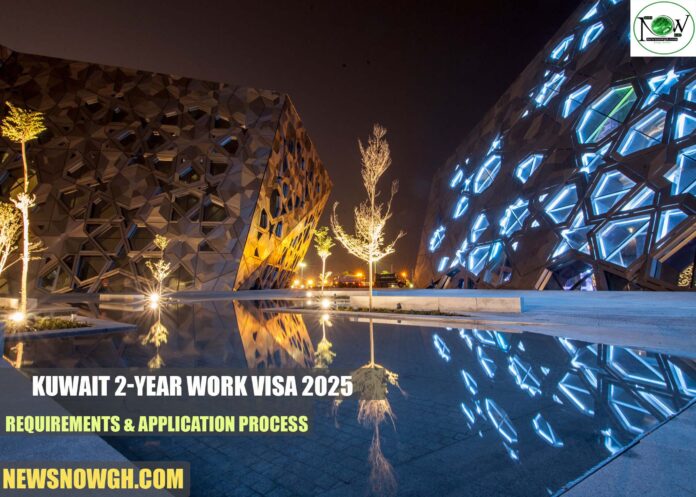Kuwait 2-Year Work Visa 2025: Requirements & Application Process
In 2025, Kuwait has streamlined its 2-Year Work Visa process for foreign workers. This route enables employers to recruit talent for one to two-year employment contracts, which are often renewable. This guide clarifies the steps for employers, HR managers, and prospective employees regarding eligibility, required documents, timelines, and common pitfalls to avoid.
Overview: Kuwait 2-Year Work Visa
The Kuwait 2-Year Work Visa, often referred to as Article 17 or 18 employment visas, allows foreign nationals to enter Kuwait. It facilitates the completion of residency (iqama/Civil ID) and work-permit formalities. Typically tied to a single employer and job, the visa is valid for one or two years and can be renewed by the employer.
The initial work permit is obtained by the employer, while the employee handles medical checks and documentation either before traveling or after arriving in Kuwait.
Types of Work Visas or Permits
Kuwait offers various visa and permit categories for foreign workers. The specific names or articles may vary on immigration forms. Here are the common types:
- Private Sector Work Visa: For professional, technical, and general roles in private companies, usually employer-sponsored and valid for 1–2 years.
- Government Sector/Public Service Visa: For roles employed directly by government or public bodies, with additional clearance steps.
- Domestic Worker Visa: Specific rules and processes apply for domestic workers and household staff.
- Contract/Temporary Project Visa: For fixed-term contracts, often related to specific projects or construction sites.
Eligibility Criteria
To qualify for a Kuwait work visa, both you and your employer must meet these basic requirements:
- A confirmed job offer and sponsorship from a registered Kuwaiti employer authorized to hire foreign workers.
- A valid passport with at least six months of validity and blank pages for stamping.
- Required qualifications and experience for the nominated role, with alignment enforced between academic qualifications and job titles.
- A clean criminal record, which may require police clearance from your home country.
- Medical fitness, including screening for infectious diseases, typically conducted pre-departure or upon arrival at approved clinics.
- Age and other sector-specific criteria as defined by the employer or Kuwaiti regulators.
Step-by-Step Application Process
Here’s a practical, step-by-step guide for applicants and employers. Some steps are handled by the employer, while others fall to the worker:
- Job Offer & Employer Sponsorship: The employer issues a formal contract and confirms sponsorship. Employers must be registered with the Public Authority for Manpower to apply for permits.
- Employer Applies for Work Permit: The employer submits the work permit application through Kuwait’s e-Government/MOSAL service. Required documents include company registration and justification for hiring.
- Pre-Departure Requirements: Some nationalities may need a visa stamped at the Kuwaiti embassy before travel. Medical tests and police checks may be requested before departure or upon arrival.
- Arrival and In-Country Formalities: Upon arrival, the employer completes residency stamping, issues a Civil ID, and registers the employee with the Public Authority for Manpower. Medical re-checks and biometrics may occur locally.
- Collect Residency Permit/Civil ID: After approvals, the employee receives their residency permit (iqama/Civil ID), which must be carried while in Kuwait. The work visa process concludes with the issuance of the Civil ID and work permit.
Conclusion
The Kuwait 2-Year Work Visa process provides a clear pathway for foreign workers seeking employment in Kuwait. With defined steps and requirements, both employers and prospective employees can navigate the system effectively.
By understanding these processes, you can ensure a smooth transition to working in Kuwait and embrace the opportunities it offers.
Follow NewsNowGh to stay updated on the latest information regarding work permits, visas, and visa-sponsored employment.


